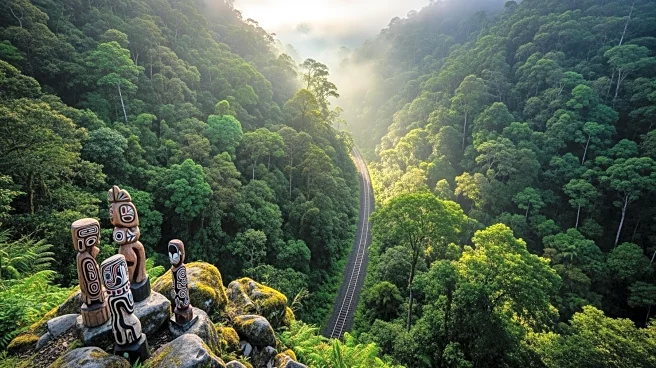What's Happening?
Brazil's proposed Ferrograo railway project, intended to transport commodities like corn and soybeans through the Amazon, has sparked protests from Indigenous groups and environmentalists. The railway would
span 621 miles from the southern edge of the rainforest to a port along the Amazon River, facilitating exports to China and other countries. The project is pending approval from Brazil's Supreme Court and a congressional watchdog, with legal challenges and protests ongoing. Indigenous populations and environmental activists argue that the railway threatens deforestation and disrupts local communities. The Brazilian government, aiming to enhance its infrastructure for exports, faces criticism for not adequately consulting affected Indigenous groups.
Why It's Important?
The Ferrograo railway project highlights the tension between economic development and environmental conservation in Brazil. While the railway promises to improve transportation efficiency and reduce carbon emissions by replacing truck transport, it poses significant risks to the Amazon's biodiversity and Indigenous communities. The project challenges Brazil's commitment to curbing deforestation, a key agenda of President Lula's administration. The protests and legal battles underscore the importance of balancing infrastructure development with environmental and social responsibilities, influencing Brazil's international image and its role in global environmental discussions.
What's Next?
The Brazilian government will await the Supreme Court's ruling and the congressional watchdog's decision on the railway's legality and environmental impact. Continued protests and legal actions by Indigenous groups and environmental organizations are expected, potentially delaying the project's progress. The outcome of these proceedings will have implications for Brazil's infrastructure policies and its environmental commitments. The government's approach to addressing Indigenous concerns and environmental impacts will be closely watched by international observers, affecting Brazil's reputation in global climate and human rights forums.










